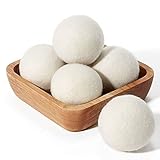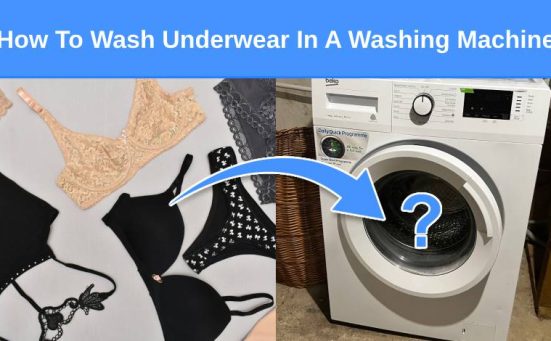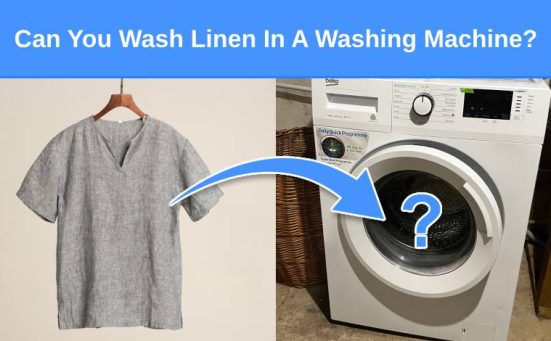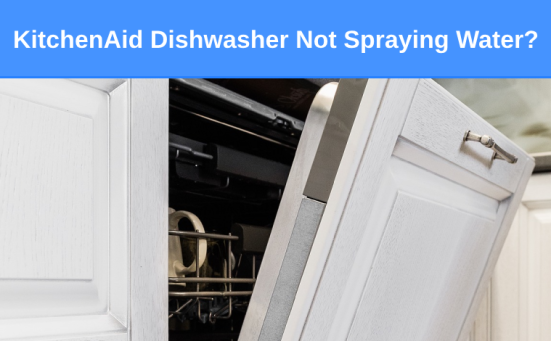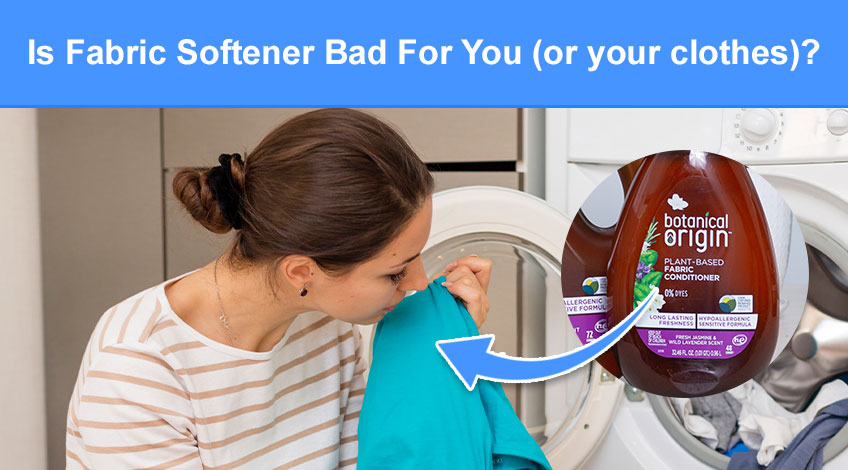
Is Fabric Softener Bad For You (or your clothes)?
Most people add fabric softener to the wash whenever doing laundry. It’s usually a habit that was picked up many years before and probably copied from a parent. But is fabric softener bad for you and your clothes?
The reality is fabric softener can be bad for both you and your clothes. To find out more, keep reading.
What Are Fabric Softeners & What Do They Do?
There are two different types of fabric softeners; a liquid that is added to the wash and sheets which are put in the tumble dryer. They are designed to make clothes smell fresh, help prevent wrinkles and reduce static as well as making clothes feel softer.
This is achieved by covering the material in wax-like coating that lubricates the fabric preventing it from catching with other items as they tumble around the drum of the washing machine or tumble dryer.
The coating reduces friction and helps separate fibres which is why clothes feel softer. Added to which the fragrance that the softener adds to the clothes is designed to last for some time. Which means you get that fresh, just washed smell following you around.
Sounds good so far right? So what’s the problem?
Do Fabric Softeners Damage Clothes?
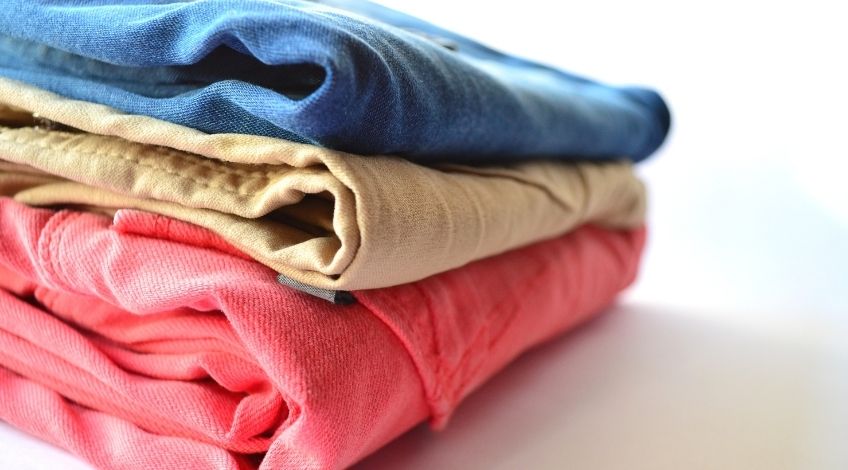
If you always check the wash care label on your clothes, you’ll likely have noticed that some say not to use fabric softeners. This is especially likely on sportswear and athletic clothing.
The reason for this is because sportswear is designed to actually wick moisture away from the body. As you perform your sporting activity, your sweat is wicked away from your skin and evaporates on the outside of the clothes.
Fabric softener coats the fabric and effectively clogs the channels that wick sweat away. Making them less effective
And it’s not just a problem for specially designed sportswear either, over time all of your clothes will become coated in fabric softener. This will prevent water from getting absorbed into the fabric which will prevent the fabric from getting clean.
You see, clothes get clean because the water soaks into the fabric and loosens the dirt, sweat and stains from the material. If there is a build up of wax-like fabric softener clogging the fibres, the clothes aren’t getting washed properly.
This can lead to clothes coming out of the wash still dirty and still smelling sweaty. Imagine the effect that fabric softeners can have on towels. As the softener builds up on the fibres of the towel, it can no longer absorb moisture.
A towel that can’t absorb moisture is about as good as a chocolate teapot. And it doesn’t stop there, a buildup of fabric softener can cause stains on clothes. These stains can range from a blue/grey stain to a yellow stain that’s particularly prevalent on white clothes.
What About The Washing machine?
Before we finish on this section, we need to quickly mention the residue that gets left behind in the washing machine. This can cause clothes which haven’t had a fabric softener added to the wash, still getting coated or stained.
But worse still, the buildup of fabric softener in the machine can cause many other issues. These include, clogging up hoses and pipes, gunking up the detergent dispenser, a breeding ground for germs, bacteria and mould spores, and the eventual breakdown of the washing machine in some cases.
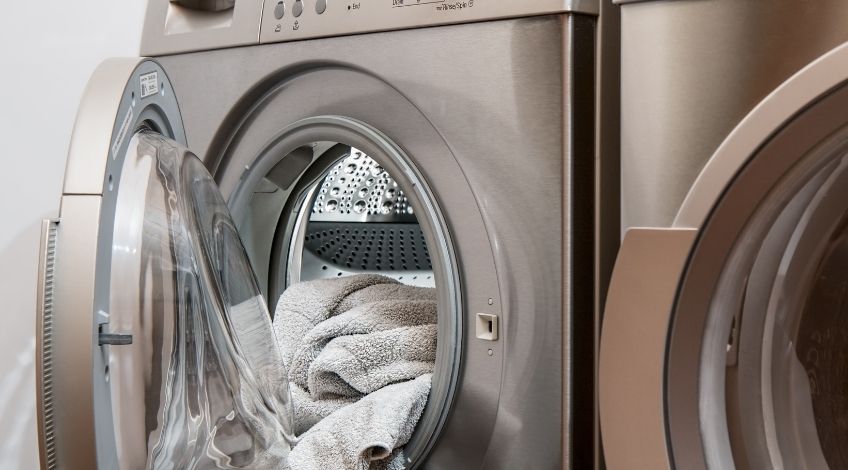
Are Fabric Softeners Bad For Your Health?
The biggest problem with fabric softeners is the fragrance. This is created using a mixture of natural and synthetic substances that leave behind that fragrant scent.
The problem is there’s little control into what the substances are that are used to make that scent. It’s widely known that in countries like the US and Canada that the products used to make detergents and fabric softeners don’t even have to be listed.
Another major problem with fabric softeners is the use of Quaternary Ammonium Compounds also known as quats. Studies have shown that these quats, which are used to reduce static, can cause skin irritations and respiratory problems. In one study it was found that people using products containing quats were more likely to suffer from an asthmatic attack.
There has also been research that found that the use of household products containing quats is linked to an increase in antibiotic resistant bacteria.
There have been other studies that show that liquid fabric softeners increase the risk of certain fabrics catching fire. Fabrics with increased flammability is not a welcome thought and should be reason enough to stop the use of fabric conditioners.
Are Fabric Softeners Bad For The Environment?
One of the main environmental issues with fabric softeners is the fact that quats don’t break down easily. This is even more difficult in water as they’re not water soluble. They can be toxic to aquatic life which includes fish, plants and algae.
Quats have been classified as pesticides which gives you an idea of the potential harm they can cause.
This is quite a worrying prospect when you consider that these chemicals are disposed of directly into our waste water which ends up in streams, rivers and oceans.
Many fabric softeners contain palm oil or petroleum based products and many are tested on animals. Some even contain dihydrogenated tallow dimethyl ammonium chloride which is extracted from animal fat.
The production of palm oil can contribute to the deforestation of the rain forests and anything linked with the petroleum industry is likely to be an environmental disaster waiting to happen.
Fabric softeners also include dyes, and a proportion of that dye ends up in the waterways. This leads to an increased risk of aquatic plants not photosynthesising. This can lead to the complete disruption of the whole ecosystem.
What About Dryer Sheets?
Dryer sheets are made from a synthetic nonwoven polyester and are designed for single use. Once used, they have to be disposed of in the general waste as they cannot be recycled.
They’re coated with a liquid fabric softener that gets released into the clothes once they’re heated up. Unfortunately, it’s not just the softener that gets released, it’s also quats which get released into your home and the surrounding environment.
This leads to an increase in asthma attacks, skin allergies and harm to the natural environment.
Are There Any Safe Natural Alternatives To Fabric Softeners?
If you’ve read enough to realise that using fabric softeners is not such a good idea any more. You might be wondering if there are any safer natural alternatives that you can use. Thankfully, there are which include;
Wool Dryer Balls
- Reduce Drying Time: Our wool dryer balls cut the drying time up to 25% by separating wet clothes, which allows warm air to circulate evenly and dry clothes faster, saving energy and money
- Anti-Static: These balls reduce static cling and make clothes soft and wrinkle-free for easy ironing
These dryer balls made from natural wool are a great alternative to dryer sheets. They reduce drying time by up to 25%, reduce static, soften clothes and help keep them wrinkle free. They can be reused time after time and if you want scented clothes you could add a few drops of your favourite essential oil to the balls.
Tennis Balls
- NON-HARMFUL: Tennis balls are safe for youngsters and dogs to use since they are constructed of thick, high-quality rubber. They are safe for the dog and children because they have been purified of all potentially harmful materials and gases. A balanced, pressurised core covered in premium polyester fibre and rubber make up a tennis ball.
- BALLS WITHOUT A PRESSURE: The tennis balls in our ball bucket do not have a gas pressure, which means they will play better and last longer than standard gas-pressured tennis balls. They are typically made of polyester and covered in a felt-like material, which gives them their distinctive texture. Balls are sturdy enough to last for extended usage.
If you don’t have any wool dryer balls, you can use clean tennis balls as an alternative. They will work in exactly the same way but should only be used at low temperatures to protect the tennis balls from too much heat.
Bicarbonate Of Soda
- ECO-FRIENDLY: Sodium Bicarbonate / Baking Soda is one of the top eco-friendly , safe and inexpensive cleaning, baking and household products available.
- CLEANING: Baking Soda is particularly useful in food preparation, cleaning surfaces, ovens, grills, microwaves and fridges whilst also deodorising and freshening without leaving any harsh chemical smells.
Adding ½ cup of bicarbonate of soda to the wash cycle will soften the water and the clothes.
White Vinegar
- PERFECT FOR COOKING - Use in vinaigrettes, sweet-and-sour dishes, marinades, pickles, chutneys, and butter sauces. Or infuse with fresh herbs to make flavoured vinegar. Whatever the occasion our Fresh White wine vinegar will be perfect.
- FABRIC SOFTENER - This white vinegar is perfect for households that have pets and children around as well as commercial premises where health and safety is of paramount importance
You should only use white vinegar and not regular malt vinegar as that would stain your laundry. All you need to do is pour ½ cup of white vinegar in the rinse cycle to soften your clothes. Take care to not use when washing synthetic fabrics.
You could also spray white vinegar onto a tea towel and put that in the wash with your laundry.
Essential Oils
- 🌸 Premium Floral Essential Oils Set - This essential oil gift set is a collection of the 6 most popular scents that include lavender, rose, cherry blossom, gardenia, chamomile, and jasmine essential oils. Extracted from natural plant, nothing added. We offer the purest form of essential oils that you can find. Diffuser this collection in your home to enjoy the Intensely floral scent and a soothing aromatic experience.
- 🌸 Aromatherapy - Add a few drops to your diffuser, vaporizer, or humidifiers, then you get an Intense and long-lasting fragrance. Whether you adore notes of aromatherapy or want to put some pep in your step, this set is a fruitful pick. Diffusing our floral essential oils at home, turning your entire space into a garden oasis. Each scent and method will unlock your senses in its own special way.
All you need to do is add a few drops of your favourite essential oil to the wash by dripping onto a tea towel. The fragrance will permeate throughout the whole wash load. Leaving your clothes smelling fresh and with a pleasant natural fragrance.
Homemade Fabric Softener
If you prefer using a fabric softener, then this homemade version is safer, kinder to your clothes, less likely to cause irritation or allergic reaction and environmentally friendly.
All you need to do is place 2 cups of epsom salts in a jar and add ½ cup of bicarbonate of soda along with 30 to 40 drops of your favourite essential oil. Mix all of the ingredients and add 2 tablespoons into the detergent drawer before every wash.
Air Drying
Clothes that dry out in the fresh air always seem to smell better. If you don’t have a washing line, you could use a clothes airer or even drape a few items over a chair.
Do You Have Any Questions?
We hope you found this helpful, if you have any questions let us know in the comments below.
SEE ALSO: How To Use White Vinegar In The Washing Machine (and why!)
Frequently Asked Questions
The reason for some fabrics advising not to use fabric softener is because it can prevent the material from removing moisture. This is especially true of sportswear which is designed to wick moisture away from the body and release it on the surface of the fabric. Other examples include flame retardant clothes because the softener can inhibit the retardant qualities, and towels because the fabric softener coats the fibres and prevents the towel from absorbing moisture.
You do not need to use fabric softener nowadays. 50 years ago it was necessary to prevent clothes from becoming harsh and scratchy. But modern detergents and fabrics no longer need fabric softeners.
To make a natural fabric softener you will need to mix 2 cups of epsom salts with ½ cup of bicarbonate of soda and 30 to 40 drops of your favourite essential oil. Add 2 tablespoons in the detergent dispenser with every wash.

